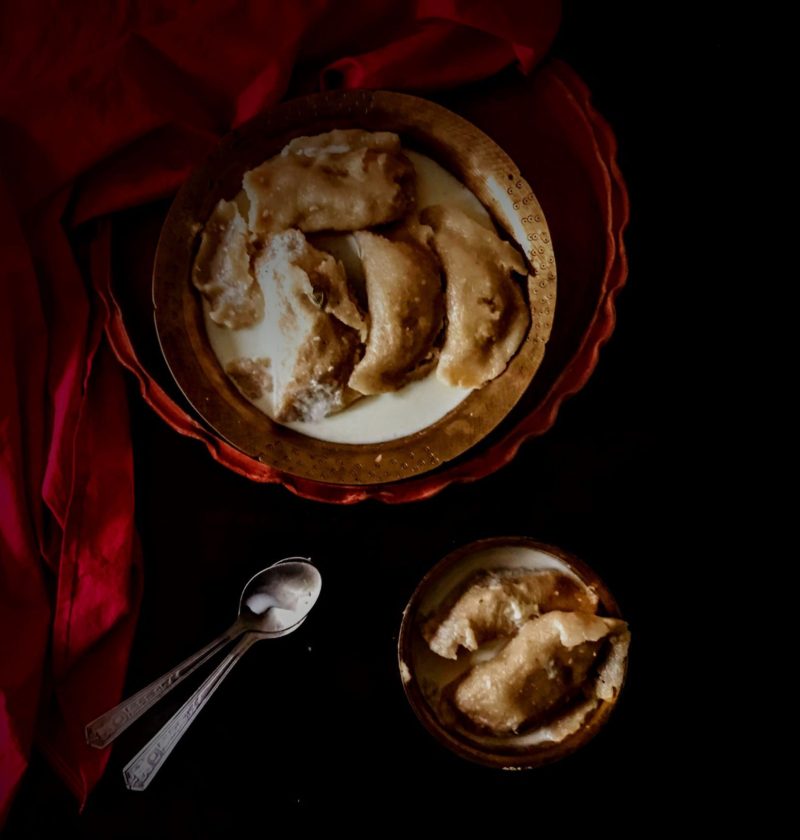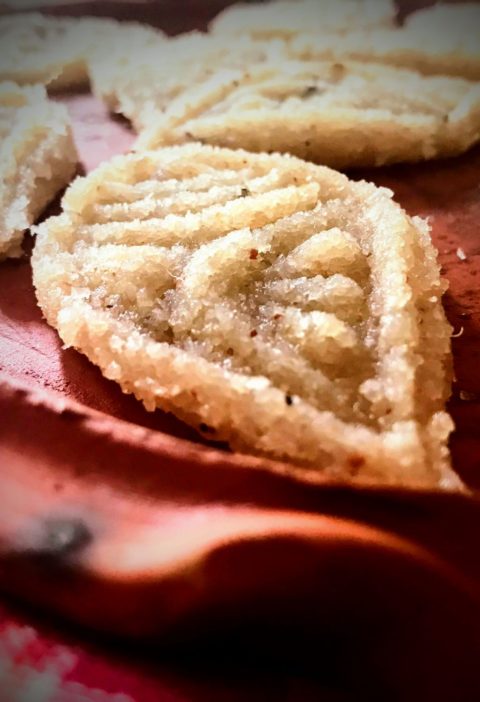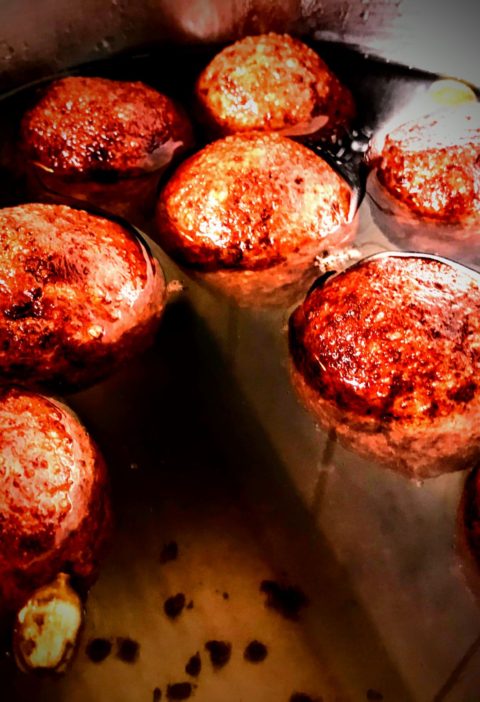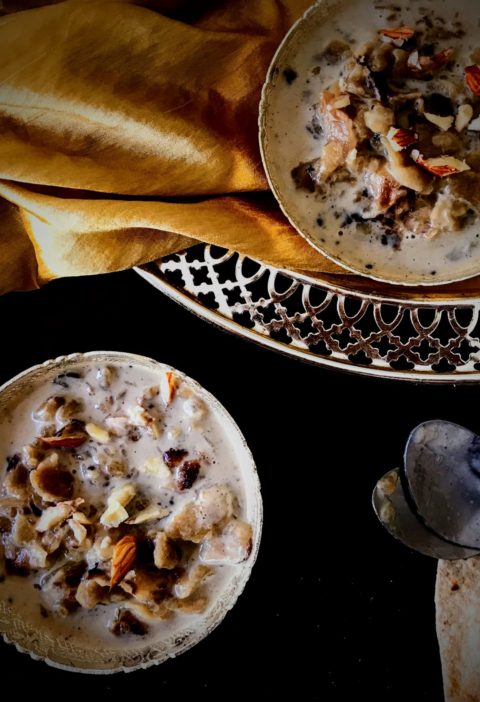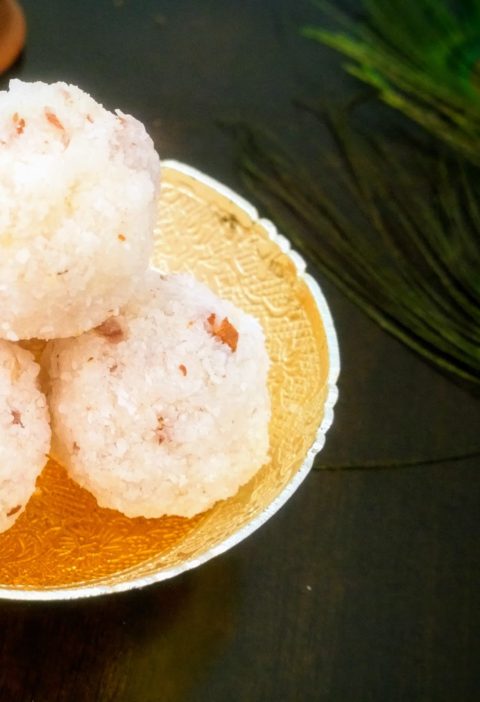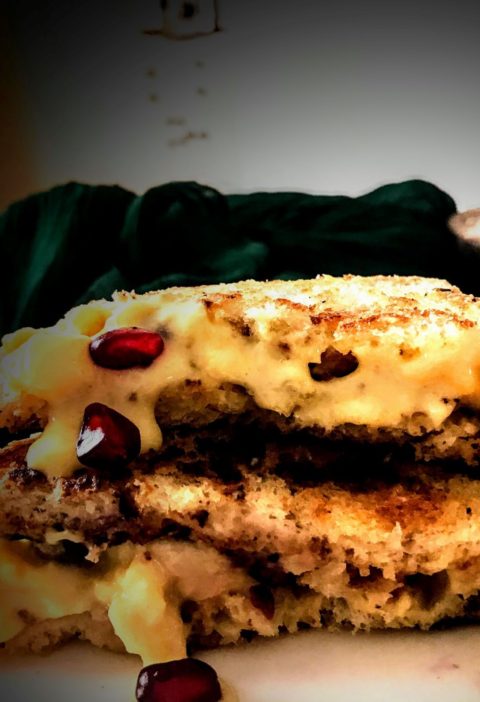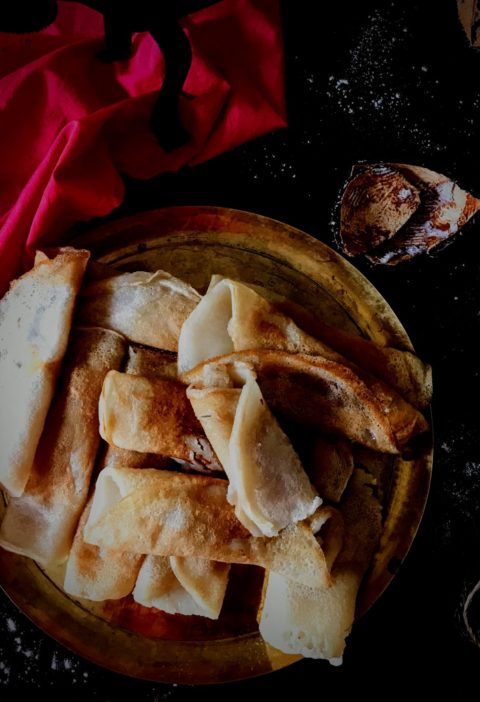Finally, the time has arrived when we are reluctantly letting go the year, which we welcomed a year back with much enthusiasm, and are slowly getting used to the change in calendar dates, when we accidently glance upon our phone screen or the new calendar hung on the wall. Although the last year was little different from all the years, as this was the year which had put everyone of us to a tough test, and the year which had allowed each and every one of us in this universe to be part of a rare history, that generations will remember. However, slowly and gradually as we are overcoming the tough, we look forward to this year with more hope and enthusiasm.
Another thing which most of us excitedly contemplate in a new calendar is, festivals. This is the time when we, the like-minded festival enthusiasts will quietly memorise the days when our favourite festivals are falling, and will secretly make the first plan of all the delicacies to be relished during these festivals 
Coming to festivals and foods associated with them, there are more reasons to be happy beyond satiating our taste buds. These festivals let us connect with our roots and culture, and also help us preserving them. When the extended families and friends come together to celebrate the festivals, together they bring the aura of positivity, hope and happiness. Even if it is for a short period of time, the festivals allow us to forget our worries and celebrate the positive side of life. With festivals we realise that life is all about living it to the fullest, and through festivals we can pass those values and legends to our children.
And the first festival that we are celebrating in India after welcoming the new year is the harvest festival called Makar Sankranti. This is the time when farmers till their soil, sow new seeds and prayers are offered to Gods to bless their crops from damage, save their cattle, protect from calamities and provide plenty of rainfall. The festival is celebrated across the country with much enthusiasm. They are known by different names in different regions like Lohri in North, Sankranti and Bihu in East, Pongal in South etc. People from every region have their own rituals and dishes to mark the festival, which they relish with their loved ones.
One such dish that was prepared in my home on Makar Sankranti during my childhood was, ‘Doodh Diye Sujir Pitha Or Coconut Stuffed Semolina Dumplings Cooked In Milk’. This Doodh Diye Sujir Pitha was one of the many pithas that would adorn the plates on Makar Sankranti mornings. Unlike the other Pithas (Aloo Pitha & Chanar Daler Pitha) that I have posted in my blog earlier, this one is a no fry pitha or dumpling, soaked and cooked in milk. The flavour of condensed milk and coconut, give this Pitha a satisfying flavour, that is hard to resist.
So, with this Sankranti, let us bring back the age-old tradition of Pitha Making, and pass the joy to the next generation, with this Doodh Diye Sujir Pitha Or Coconut Stuffed Semolina Dumplings Cooked In Milk.
Below is the step-by-step recipe.
Recipe: Doodh Diye Sujir Pitha Or Coconut Stuffed Semolina Dumplings Cooked In Milk
Time Taken To Grate Coconut (manually): Around 25 minutes Cooking Coconut: 10 minutes (on low flame) Roasting & Cooking Semolina (on low flame): 14 minutes Dough Making: 5 minutes Pitha Making: 21 Minutes Boiling Milk & Cooking Pitha: Around 25 Minutes Equipment Used: A multi-purpose pan, turner, coconut grater, a bowl, a large plate to spread pitha, a sauce pan to boil milk and cook pitha (optional), grinding stone to crush pitha Yield: 10 pithas (depending on the size)
Ingredients:
- 1 fresh coconut
- 11/8 cup sugar
- 5/8 cup semolina
- 2 tablespoon refined oil
- 2 cups water
- 2 cups all-purpose flour or maida
- ½ ltr milk
- 6 elaichi or green cardamoms
Method:
- Grate the coconut
- Put the pan with coconut on the burner or hob of stove
- Add 1 cup sugar into the pan and switch on the stove while keeping the flame low
- Stir continuously till the coconut granules are cooked, sugar melts and the mix is sticky
- Keep the coconut mix aside, clean the pan and put it on stove again for heating
- Roast semolina in the pan for 2 minutes on low flame once the pan is hot
- Shift the roasted semolina to a container and heat refined oil in the pan
- Add the roasted semolina and mix the semolina properly with the oil
- Add water and 1/8 cup sugar, and stir till the semolina is cooked and sticky without any lumps
- Switch off the flame and allow the semolina to cool down to room temperature
- Now add and mix little by little 1 cup all-purpose flour to cooked semolina, till you get an easily manageable semolina dough
- Keep another 1 cup all-purpose flour separately in a bowl
- Now take out small part of semolina dough, and make small balls out of it around the size of a lemon
- One by one dip the balls in the all-purpose flour and flatten the dough balls with hand by pressing the edges
- Fill the flattened dough with the cooked coconut & sugar mix as much as the size of your little finger
- Seal the edges and keep the dumplings aside
- Boil milk in a pan
- Simmer and condense the milk for few minutes while stirring and scraping the parts stuck to the pan
- Add ¼ cup sugar
- Crush the green cardamom and sprinkle on the milk
- One by one put the dumplings into the milk
- Cook the dumplings in the milk for around 10 minutes
- Switch off the flame and keep the pithas covered till they cool down
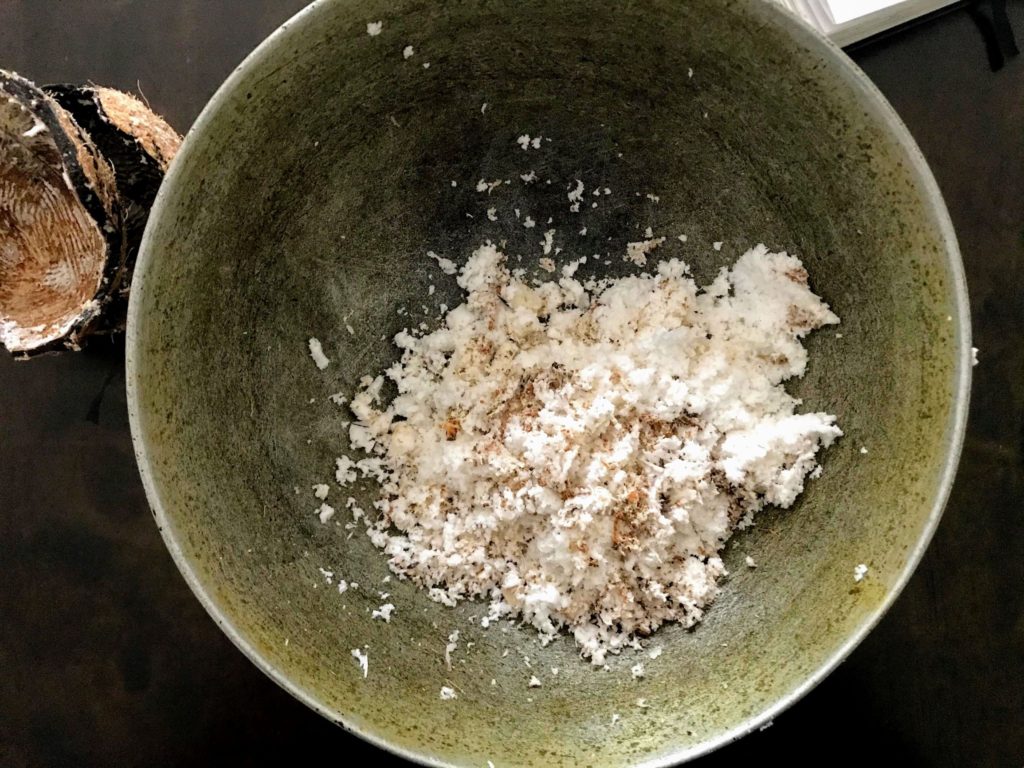
Grate coconut.
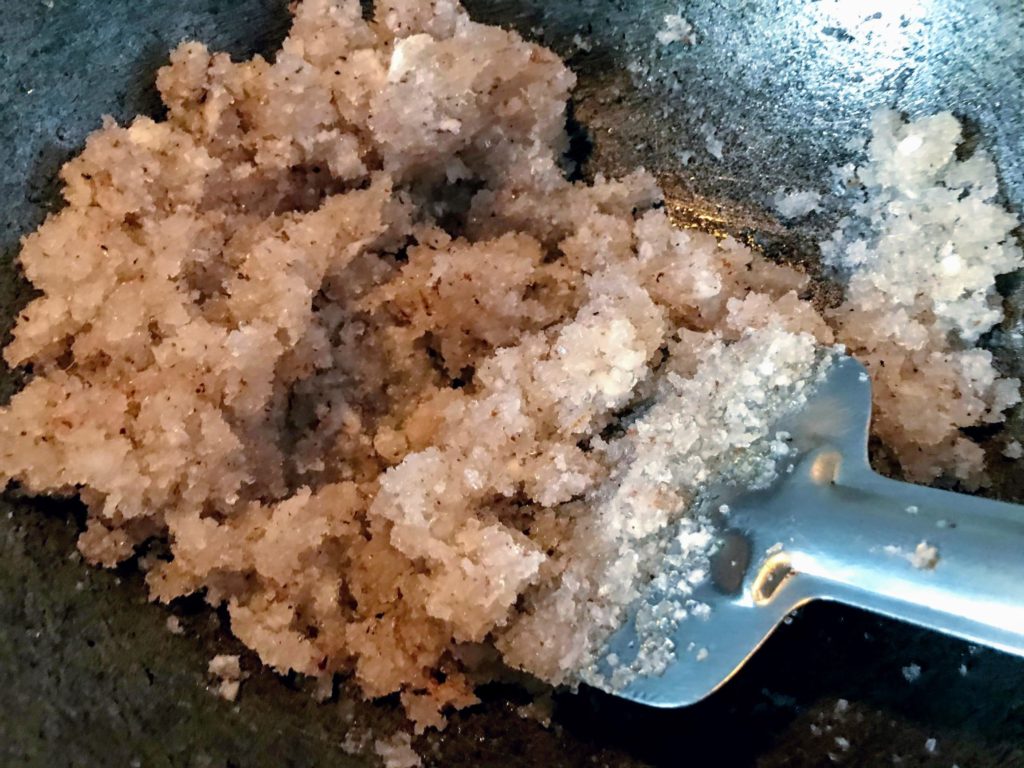
Cook the grated coconut with sugar on low flame.
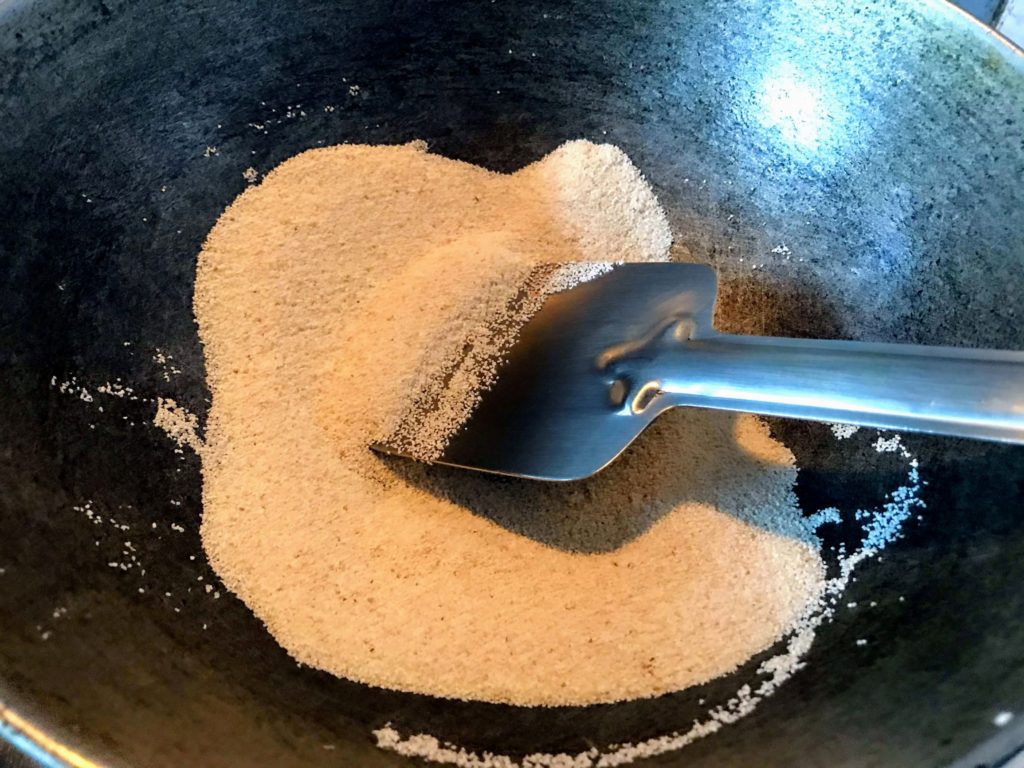
Clean the pan and roast semolina.
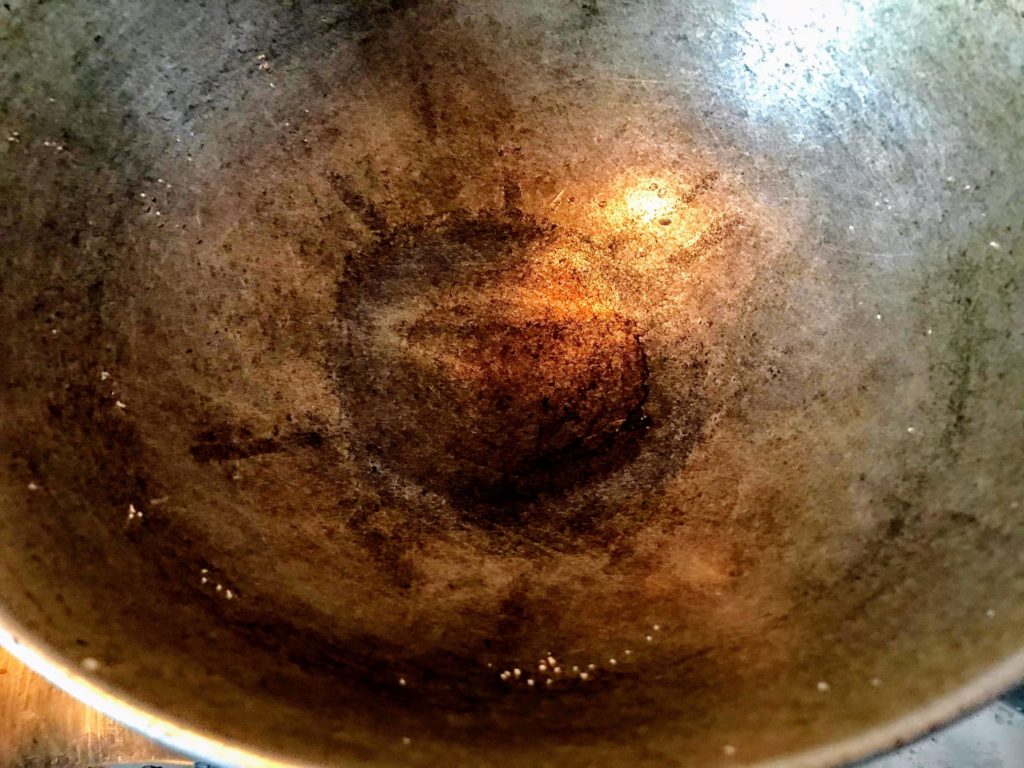
Heat refined oil.
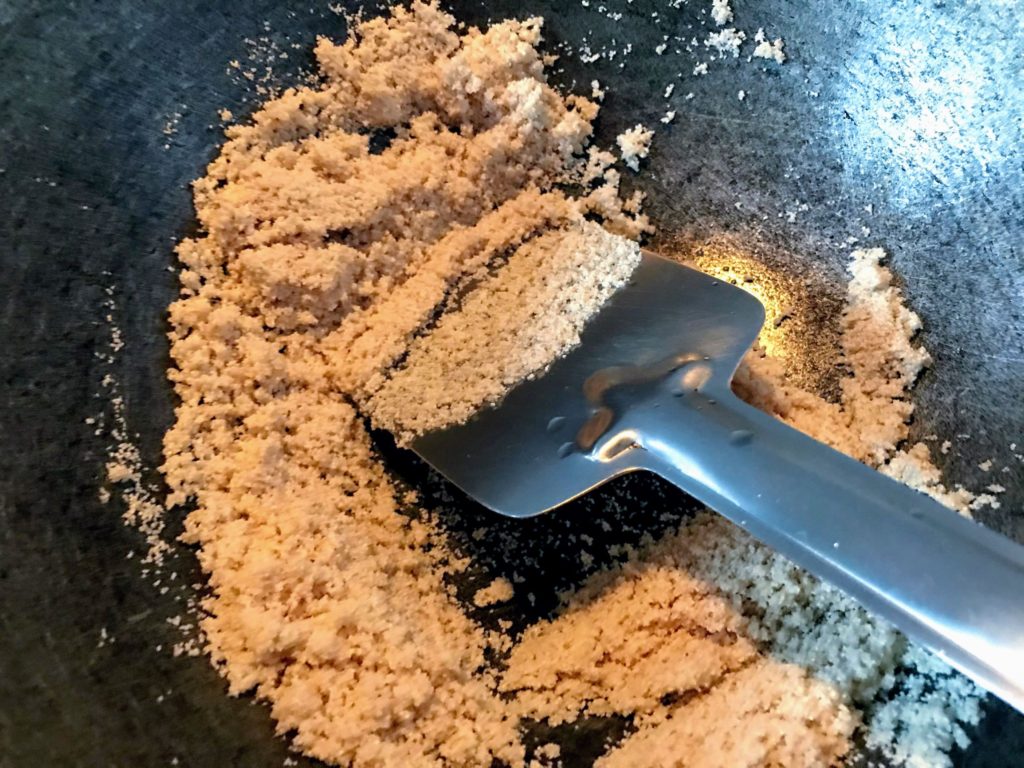
Mix the roasted semolina properly with the oil.
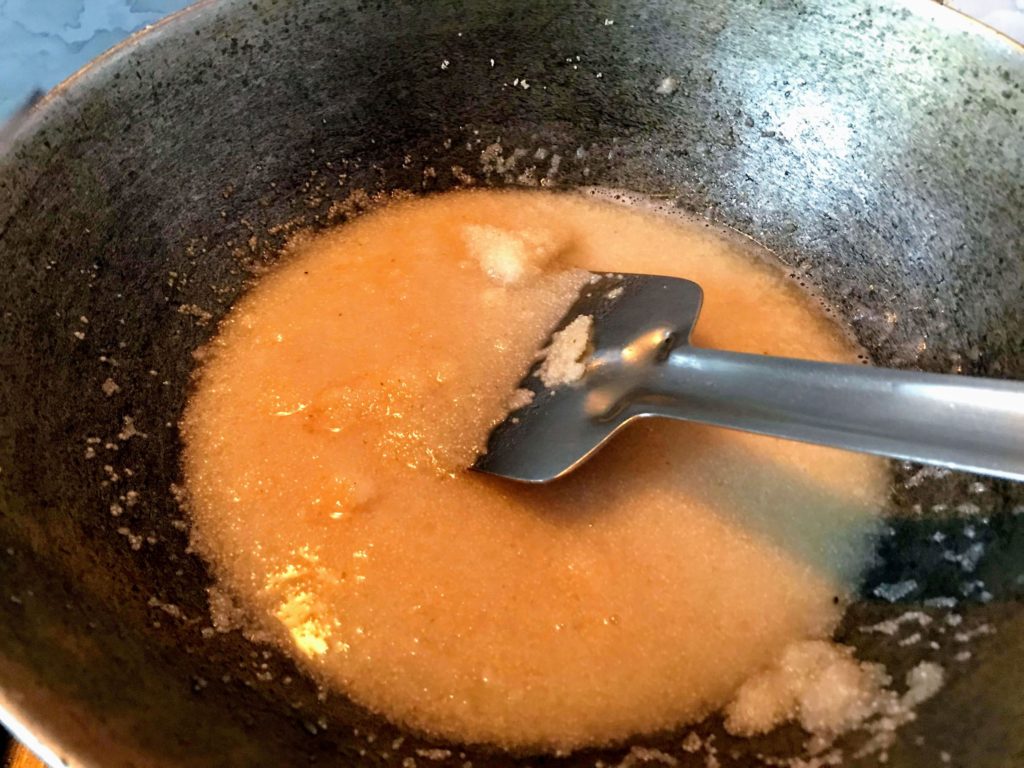
Add water and sugar.
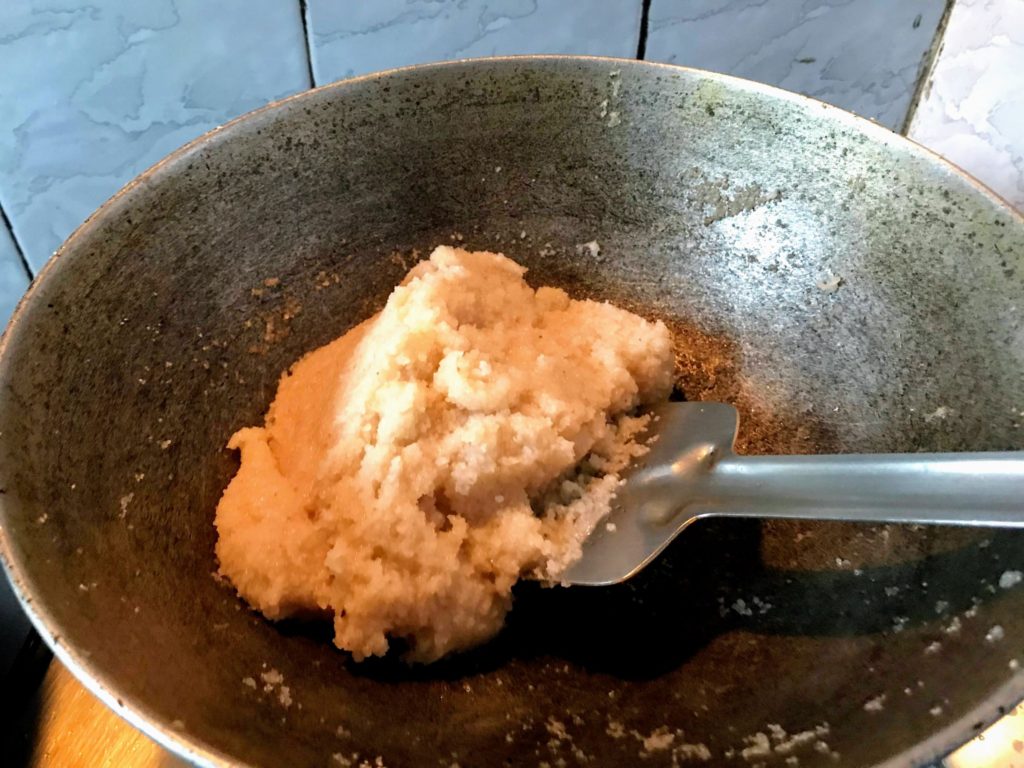
Stir till the semolina is cooked and sticky without any lumps.
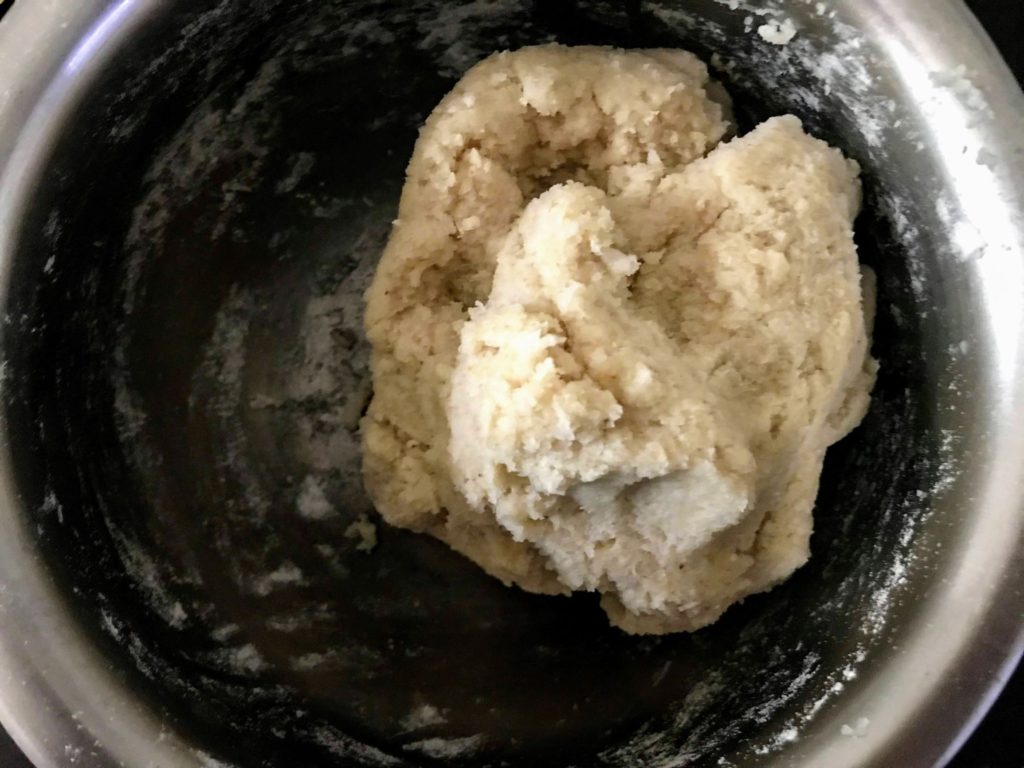
Add and mix little by little all-purpose flour to cooked semolina to make a dough.
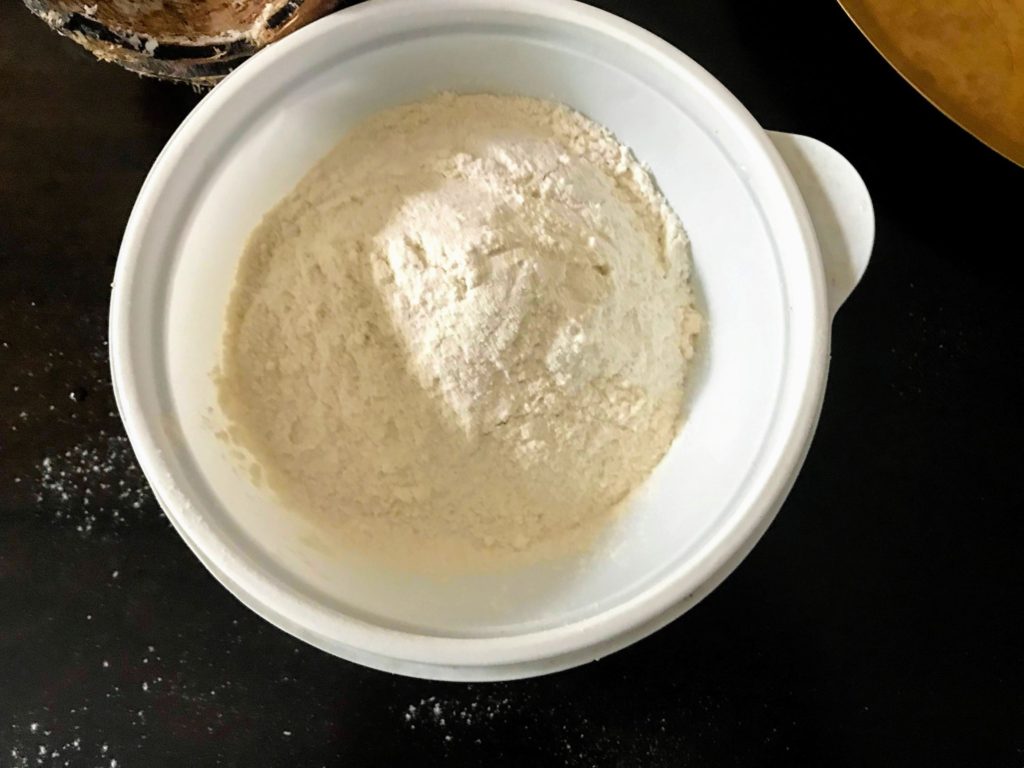
Keep another 1 cup all-purpose flour separately in a bowl.
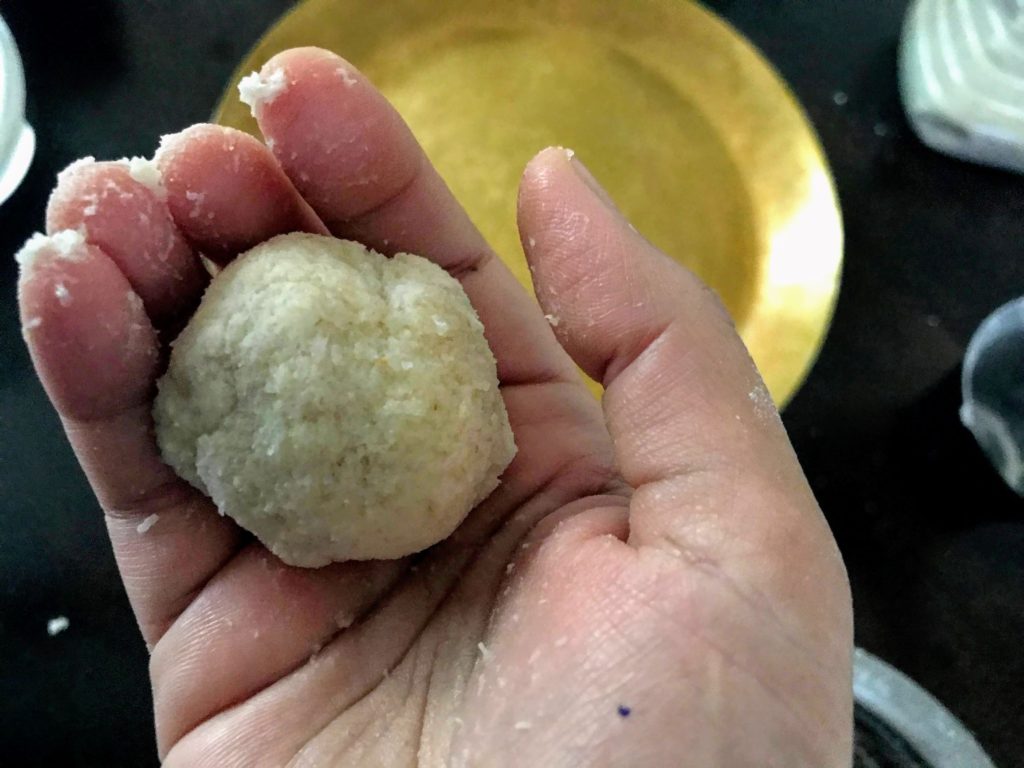
Make small balls out of semolina dough.
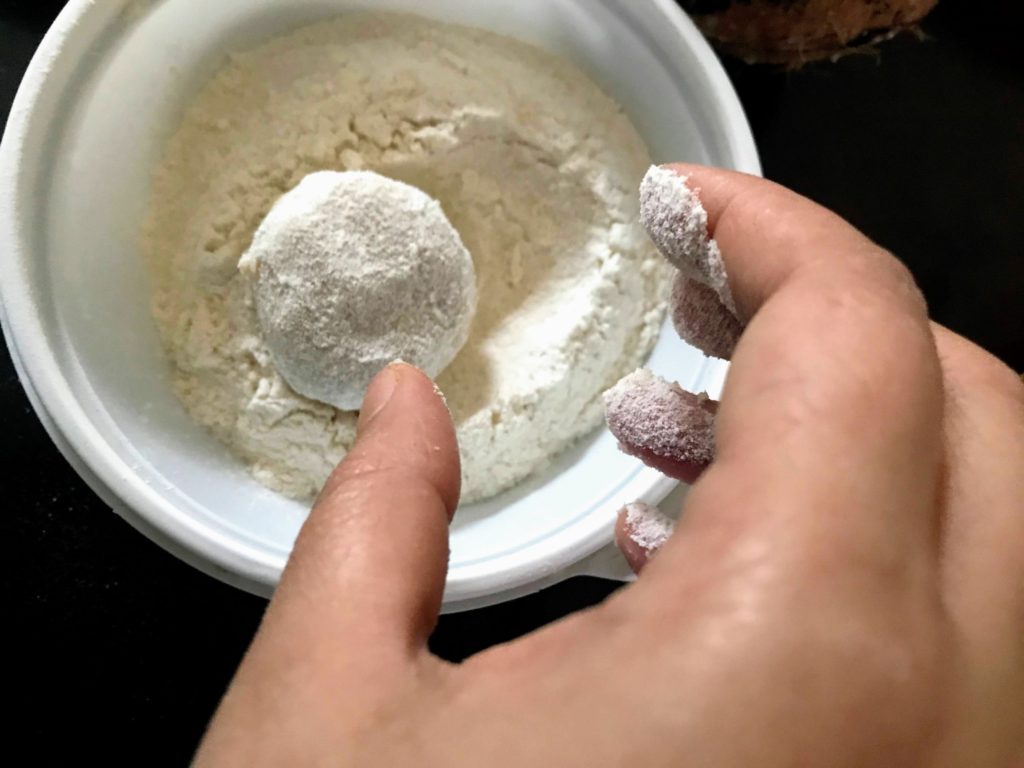
One by one dip the dough balls in the all-purpose flour.
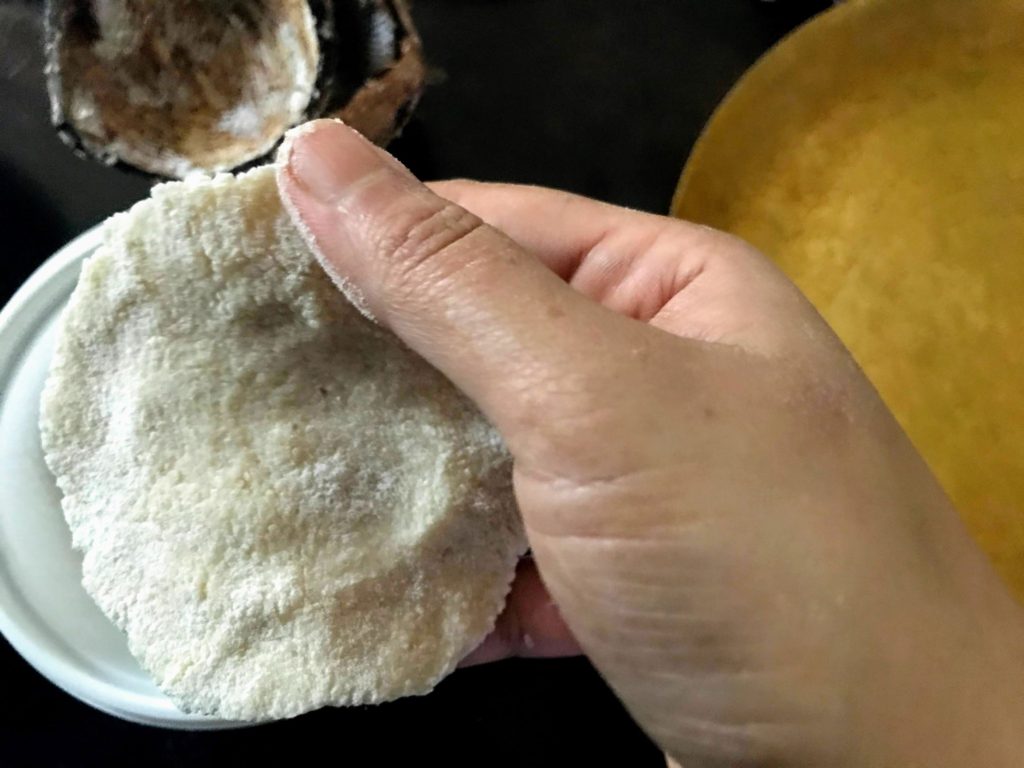
Flatten the dough balls with hand by pressing the edges.
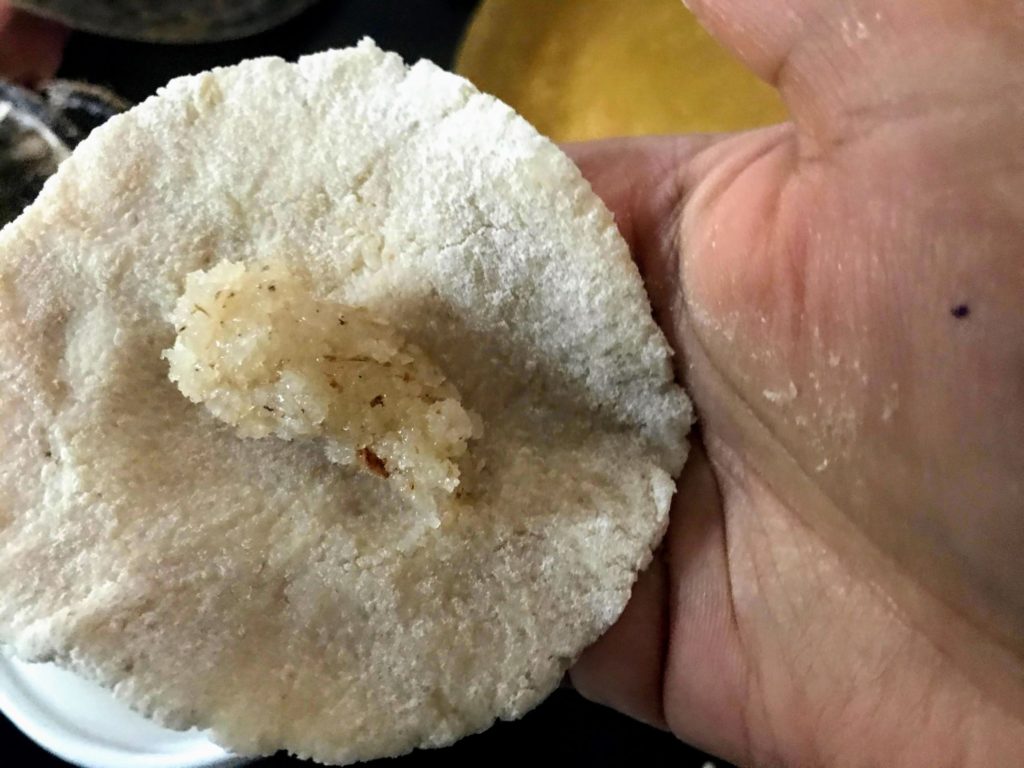
Fill the flattened dough with the cooked coconut & sugar mix
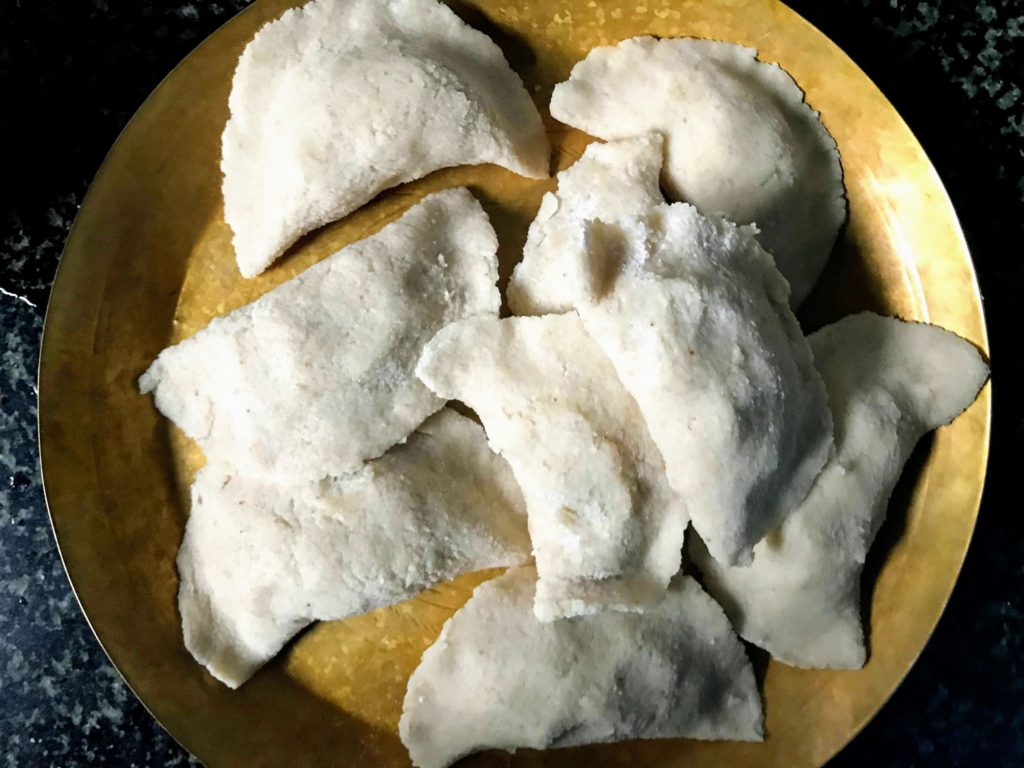
Seal the edges and keep the dumplings aside.
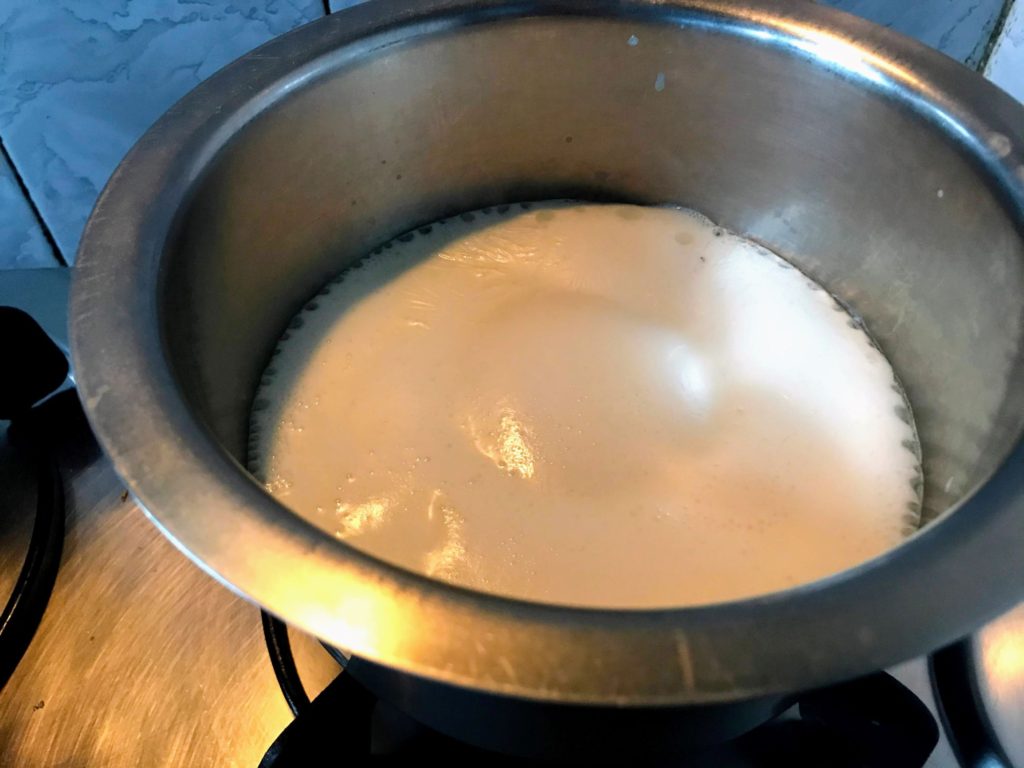
Boil milk in a pan.
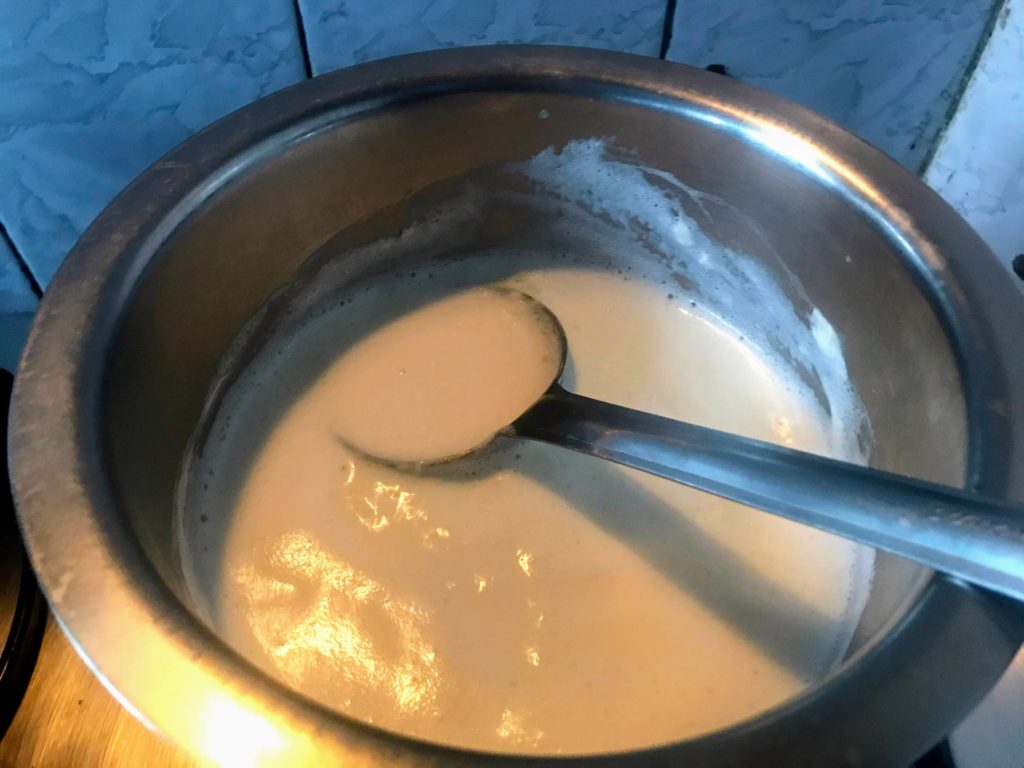
Simmer and condense the milk for few minutes.
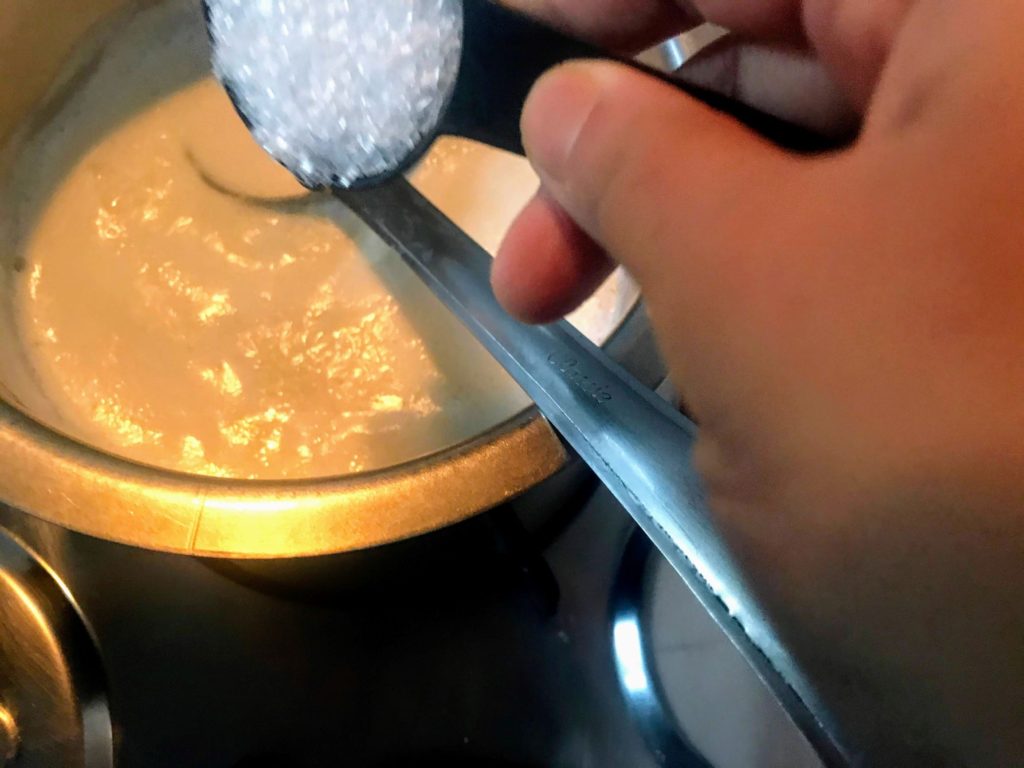
Add sugar.
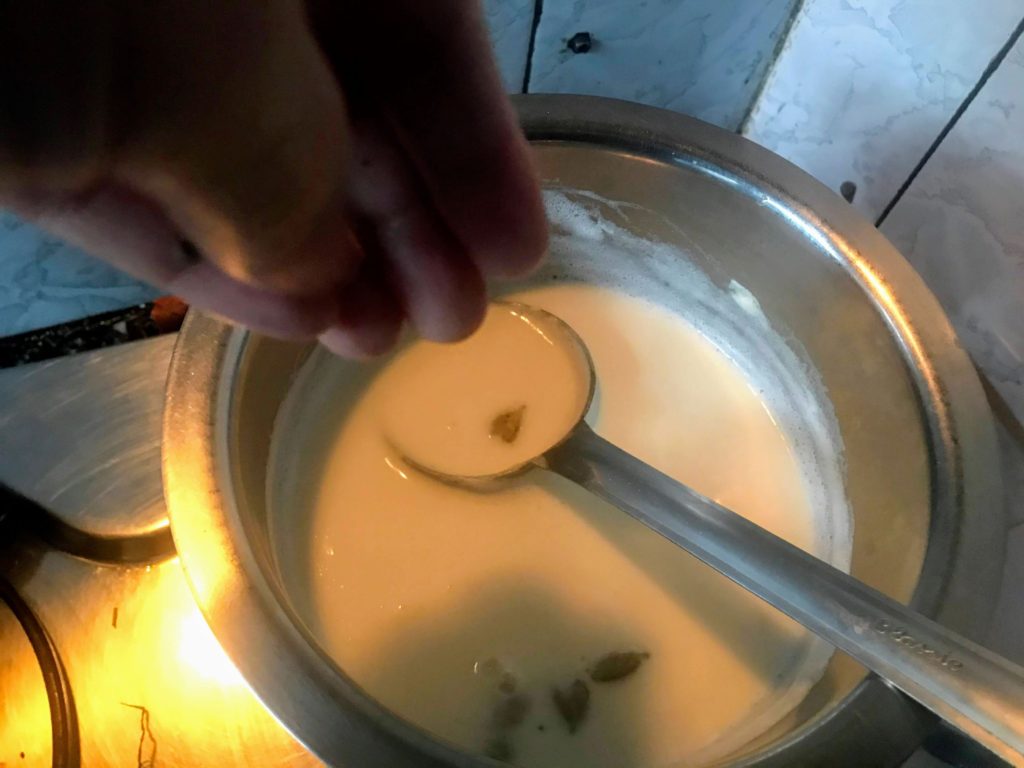
Crush the green cardamom and sprinkle on the milk.
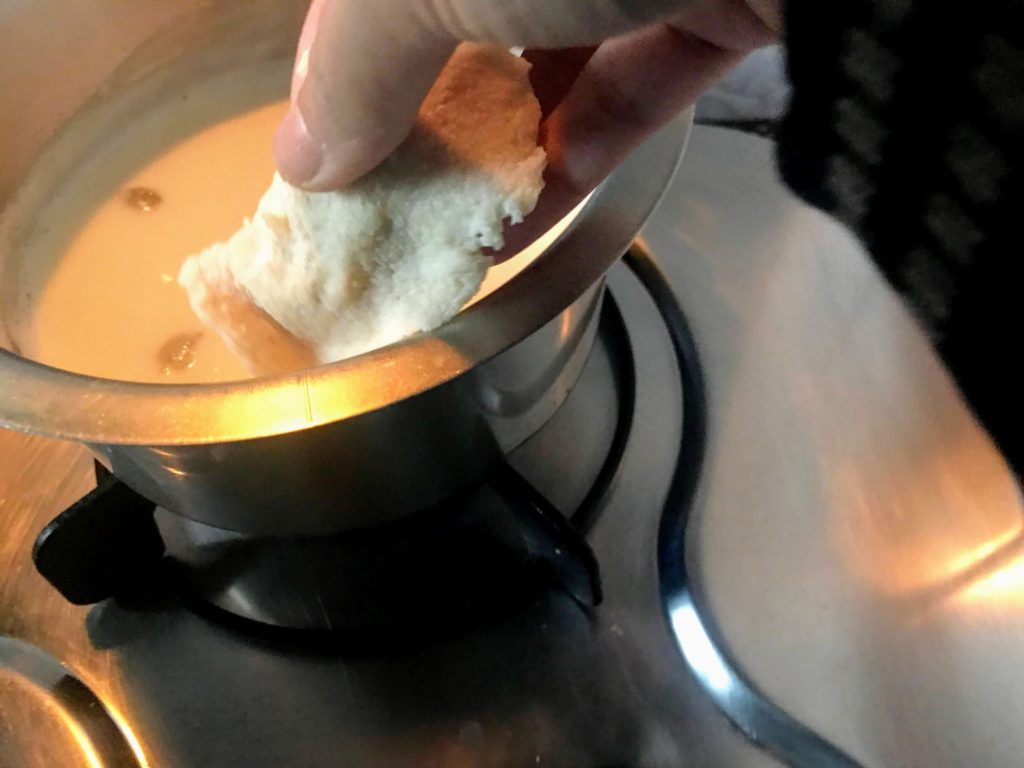
One by one put the dumplings into the milk.
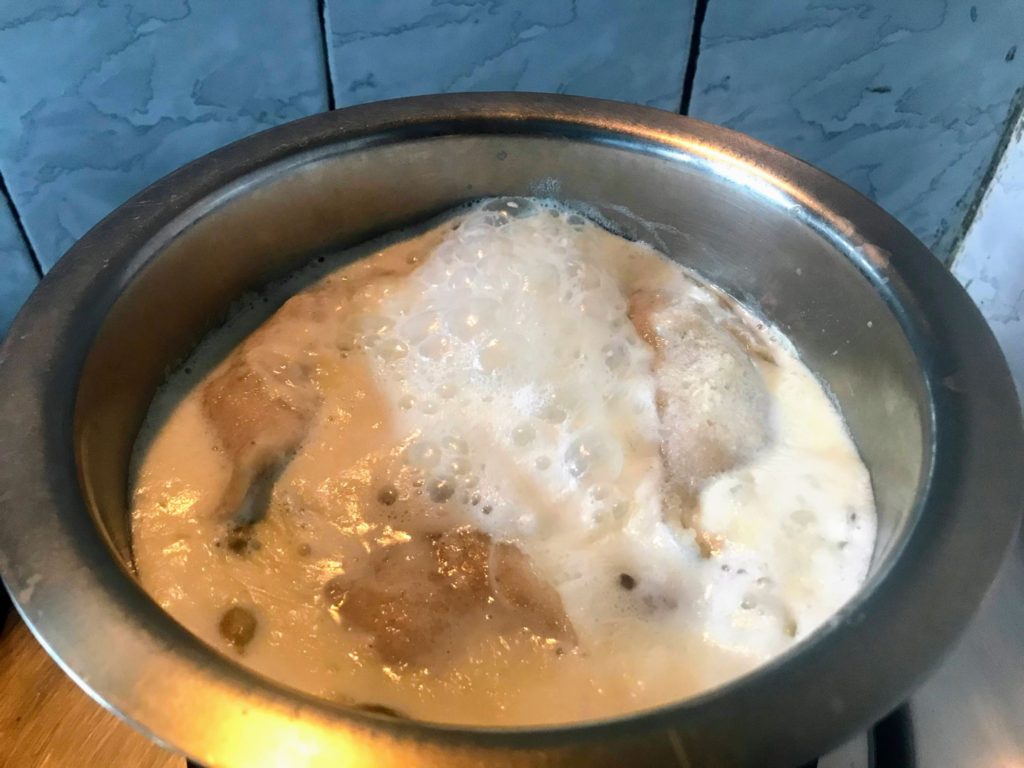
Cook the dumplings in the milk for around 10 minutes. Switch off the flame and keep the pithas covered till they cool down.
Tips:
- Roast till you get the aroma of roasted semolina
- While boiling or condensing milk, place a big spoon in the pan to avoid spilling milk from pan. Ensure the spoon should be big enough that the part of the spoon should remain outside the pan
- You can reuse the all-purpose flour used for dipping the dough balls
Note:
While cooking the dumplings in the milk, part of my dumplings broke as I was over enthusiast and started flipping the dumplings. I advise not to do the same.
